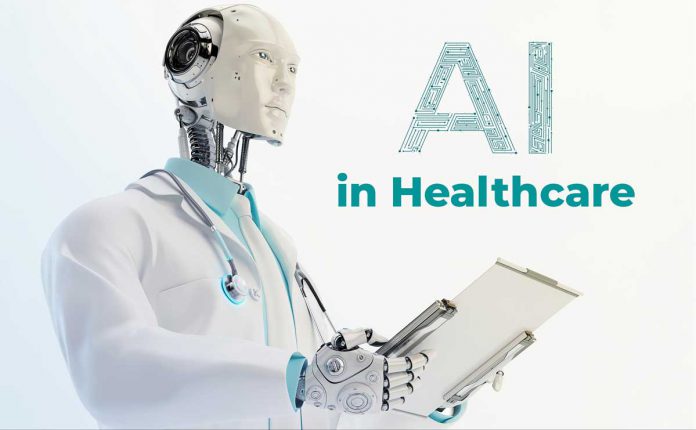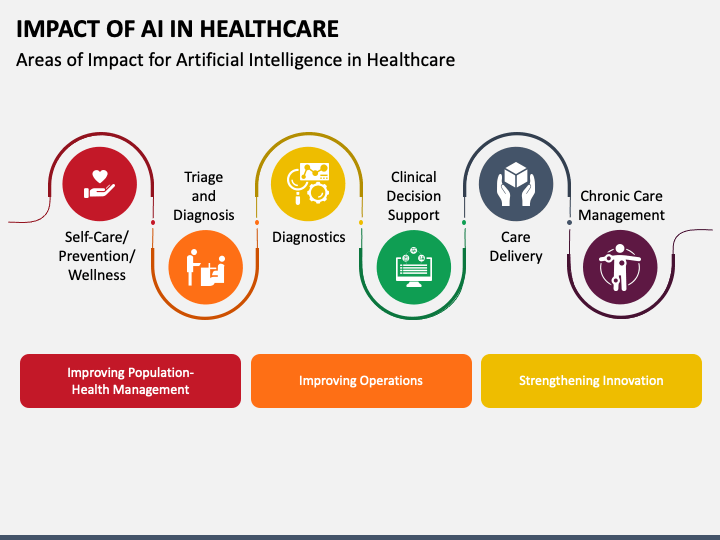AI is becoming a huge influence in the world of healthcare, with the ultimate goal of improving patient outcomes. This will be done by AI analyzing immense amounts of medical data and coming to conclusions without direct human aid to improve diagnostics, advance treatments, boost patient engagement, and to support administrative tasks at hand to better improve efficiency in the workplace.
There are actually various subtypes of AI being used in healthcare as we speak. There’s Natural language processing algorithms that are giving machines the ability to comprehend and decipher human language. The techniques used in machine learning are making computers recognize patterns and make prediction based on vast volumes of complex medical data.
Lets dive deeper into the 4 ways how AI can impact healthcare!

Diagnostics
AI technology has the ability to help healthcare professionals to diagnose patients by analyzing any symptoms, treatments personalized by patients, and overall predicting the risk that a patient has towards a certain disease/issue. To help improve patient outcomes, healthcare AI can be used to create algorithms that forcaset individual and community health risk. This has been done at the University of Pennsylvania, where doctors predicted sepsis or septic shock in patients around 12 hours in advance! They did this by using a machine learning algorithm that can track hundreds of important indicators in real time.
Treatment
There have been a number of cases where AI has been helpful in treating patients. A number of researches posted an article on frontiers ( a human neuroscience article organization) explaining how brain -computer interfaces are helping the process of rehabilitation of people with motor/speech impairments.
AI also has the capacity to accelerate the process of drug development. This will lead to reduced time and costs for discovery. By utilizing AI tools for data-driven decision making, researches can identify and prioritize compounds that should be further explored.
Patient Engagement
The utilization of wearables and personalized medical devices, like smartwatches and activity trackers, provides a way for patients and clinicians to monitor health and gather data for population health research. Additionally, these devices may assist in enhancing patient adherence to treatment recommendations, which can have an impact on treatment outcomes. However, noncompliance with prescribed medications or recommended behavioral changes may lead to treatment failure. AI technology can help personalize treatment plans and encourage patients to become more engaged in their care. For example, Livongo is a company that sends personalized health notifications, or “health nudges,” to its users to support both mental and physical health.
Admin Tasks
A study at Mayo Clinic as proven that physicians spend around 34% to 55% of their work day creating notes and reviewing medical records in the electronic health record, which in turn will drop productivity levels. AI has the potential to automate this process for physicians, so that they won’t have to do it at all. For instance, clinical documentation tools that leverage natural language processing can decrease the amount of time clinicians spend on documentation tasks, allowing them to concentrate on delivering high-quality care.
In addition to this, AI can help claims management by creating algorithms that can detect insurance claim issues before insurers do. This will save the insurers’ time, as 80% of claims are flagged incorrect or fraudulent.
